Hollywood Moms
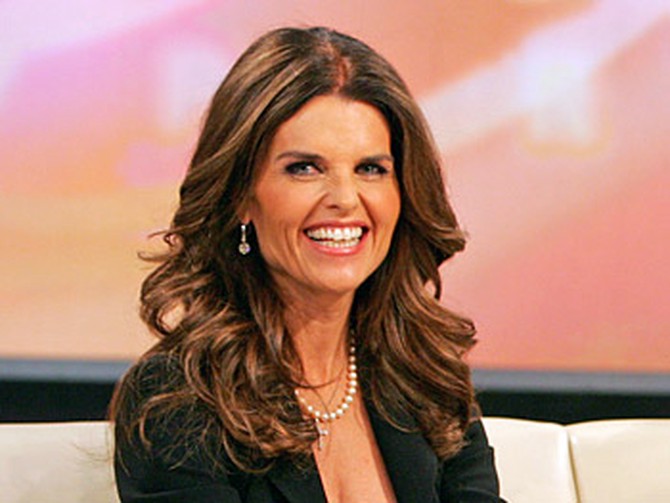
Since they've been friends for years, Oprah knows the topic that's closest to Maria Shriver's heart—motherhood.
Along with her husband, Arnold Schwarzenegger, the first lady of California is the proud parent of four kids—Katherine, Christina, Patrick and Christopher.
She is also the daughter of Eunice Kennedy Shriver. Maria says her feelings about motherhood are inherited from Eunice. "She was raised by a very strong mother," Maria says. "So she really raised me to think of that as a really important part of my life, a role in my life, and the most important thing I would ever do."
Maria likes talking about motherhood so much that she'll talk to anybody about it. "It's the one thing I do constantly," she says. "When I see kids get along well, I go, 'Let me talk to your mother. How did she do that?'"
Along with her husband, Arnold Schwarzenegger, the first lady of California is the proud parent of four kids—Katherine, Christina, Patrick and Christopher.
She is also the daughter of Eunice Kennedy Shriver. Maria says her feelings about motherhood are inherited from Eunice. "She was raised by a very strong mother," Maria says. "So she really raised me to think of that as a really important part of my life, a role in my life, and the most important thing I would ever do."
Maria likes talking about motherhood so much that she'll talk to anybody about it. "It's the one thing I do constantly," she says. "When I see kids get along well, I go, 'Let me talk to your mother. How did she do that?'"

Demi Moore's family is anything but typical…but in the best possible way. When she and her husband, actor Bruce Willis, separated in 1998, they decided to commit themselves to keeping their family—which included daughters Rumer, Scout and Tallulah—close together.
"I think there was a simple thought that I had, which is, 'We are a family,'" Demi says. "Bruce and I are a family with our children, and we will always be a family. It is not in a traditional form anymore, but we are that. And so how do we make that work and be a family? How do we share what families like to share? How do we share Thanksgiving? And then how do we extend that to including other people?"
When Demi later married actor Ashton Kutcher—who is 16 years younger than her—Bruce was one of the guests invited to the ceremony. Ashton, Demi, Bruce and the girls even vacation together.
"I think the coming together is something that's not one big magical thing. It's been an evolution. It's been a combination of a healing process, but one that's really come, I think, from a place of love and particularly the love of the creation of our children."
"I think there was a simple thought that I had, which is, 'We are a family,'" Demi says. "Bruce and I are a family with our children, and we will always be a family. It is not in a traditional form anymore, but we are that. And so how do we make that work and be a family? How do we share what families like to share? How do we share Thanksgiving? And then how do we extend that to including other people?"
When Demi later married actor Ashton Kutcher—who is 16 years younger than her—Bruce was one of the guests invited to the ceremony. Ashton, Demi, Bruce and the girls even vacation together.
"I think the coming together is something that's not one big magical thing. It's been an evolution. It's been a combination of a healing process, but one that's really come, I think, from a place of love and particularly the love of the creation of our children."
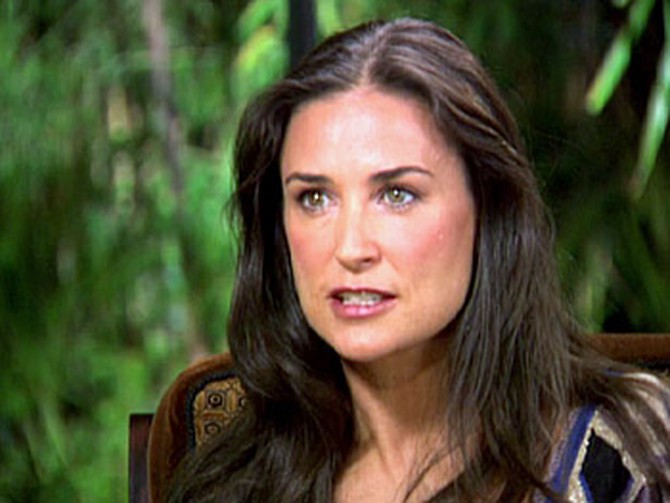
For someone so committed to doing the best for her own children, Demi says her relationship with her mother, Virginia, was sometimes challenging. Demi says her mother had her when she was just 18. By the time Demi was 5, she started calling her mom Ginny. "My experience is that I was very much the mother to my mother."
Demi says her mother had undiagnosed bipolar disorder and struggled with addiction, and Demi left home at 16.
As Demi became famous, their relationship became more difficult and Demi eventually chose to completely cut off contact with her mother. "She made some choices that were, what I felt, potentially threatening to my children and the family that I had created," she says. "In the moment I felt as if it was the best thing that I could do, because it was setting myself up to have something unpredictable. Whether it was selling stories to the tabloids or things that I just felt I couldn't trust."
Demi says her mother had undiagnosed bipolar disorder and struggled with addiction, and Demi left home at 16.
As Demi became famous, their relationship became more difficult and Demi eventually chose to completely cut off contact with her mother. "She made some choices that were, what I felt, potentially threatening to my children and the family that I had created," she says. "In the moment I felt as if it was the best thing that I could do, because it was setting myself up to have something unpredictable. Whether it was selling stories to the tabloids or things that I just felt I couldn't trust."
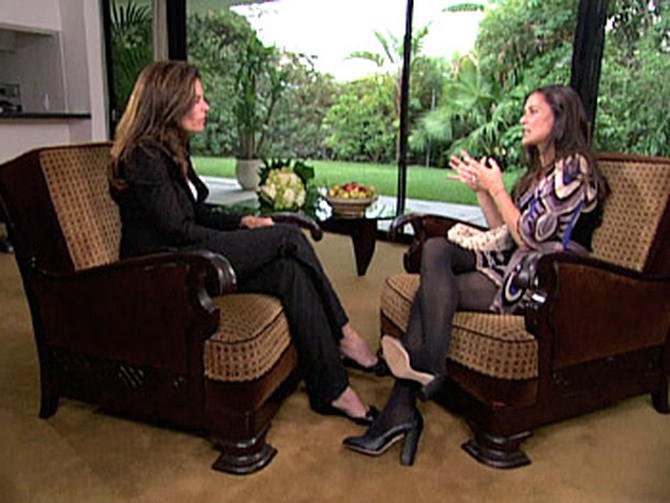
After seven years of separation, Demi received news that her mother had been diagnosed with cancer and doctors feared she wouldn't make it through the night. "We all flew to where she was in New Mexico," Demi says. "When we got down there, I realized that she had never met the two younger children. And the last [time] she had seen my oldest daughter is [when] she was 2 years old."
Virginia lived through the night and Demi decided she would care for Virginia until the end of her life. "It was a tremendous, tremendous gift. I don't know what gave me any kind of clarity to make that decision, but I am so grateful that I did because … I walked away having so much more of her than I would have had, had I not taken that time to be there," Demi says. "I went really not with an expectation of, 'I want her to apologize,' 'I want her to have some big clarity of where things went awry.' And what I got was this little glimpse. … She didn't even say, 'I'm sorry.' She said, 'I wish it could have been better.' And that was so much. … That really gave me such an enormous healing."
Virginia lived through the night and Demi decided she would care for Virginia until the end of her life. "It was a tremendous, tremendous gift. I don't know what gave me any kind of clarity to make that decision, but I am so grateful that I did because … I walked away having so much more of her than I would have had, had I not taken that time to be there," Demi says. "I went really not with an expectation of, 'I want her to apologize,' 'I want her to have some big clarity of where things went awry.' And what I got was this little glimpse. … She didn't even say, 'I'm sorry.' She said, 'I wish it could have been better.' And that was so much. … That really gave me such an enormous healing."
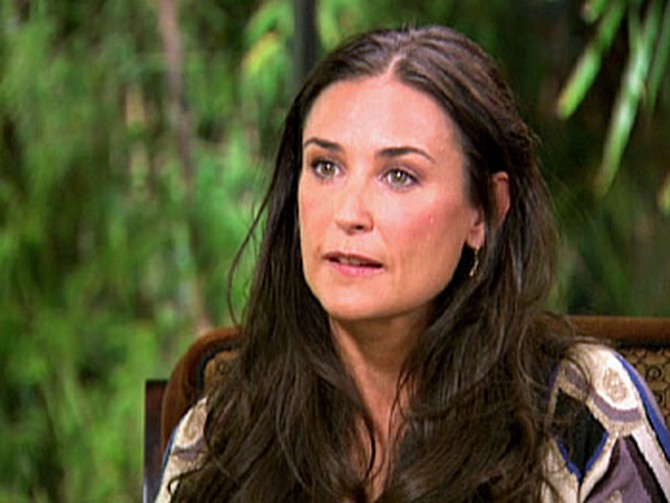
When Virginia died three and a half months later, Demi says she felt, "Whatever wrongdoings, bad deeds, actions that she had—what was hers was hers and she took it with her. And what was mine—whether justified or not, anything that I did that was potentially negative, out of anger—was mine. And I didn't have this place that I could push it towards anymore. And it really gave me a lot of a compassion for myself. In a way … I don't know if I knew that it was okay to be vulnerable before that."
Demi says dealing with issues with her mother made her realize how important it is for all people to forgive before it's too late. "Because really when they're gone, they're gone," she says. "While they're alive, you're putting it over there thinking that it's not yours. … There's just so much more to gain when you can recognize the innocence and the beauty of what someone is and be able to clear that path. You just make room for so much more in your life."
Demi says dealing with issues with her mother made her realize how important it is for all people to forgive before it's too late. "Because really when they're gone, they're gone," she says. "While they're alive, you're putting it over there thinking that it's not yours. … There's just so much more to gain when you can recognize the innocence and the beauty of what someone is and be able to clear that path. You just make room for so much more in your life."
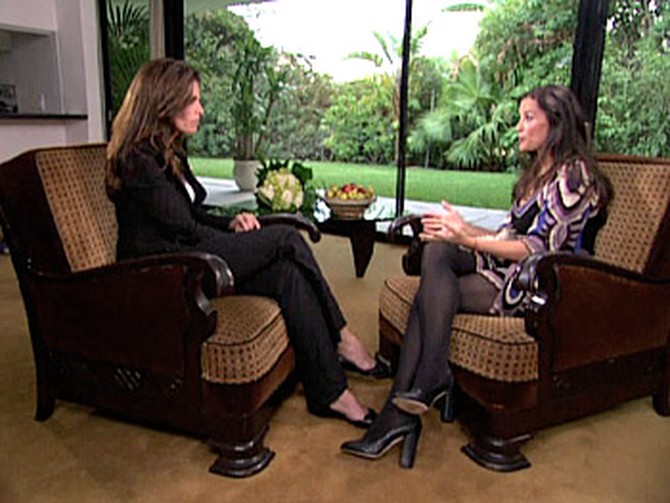
Maria: So on this Mother's Day, after you kind of get feted by your girls at all their different teenage stages, when you sit down and talk to your mother on that day, what will you say to her?
Demi: Thank you. I have to thank her and really hope that she guides me to still be open, to be a student, so that I can still learn and not have to know. And perhaps ask her for forgiveness for being so righteous as the daughter.
Demi: Thank you. I have to thank her and really hope that she guides me to still be open, to be a student, so that I can still learn and not have to know. And perhaps ask her for forgiveness for being so righteous as the daughter.
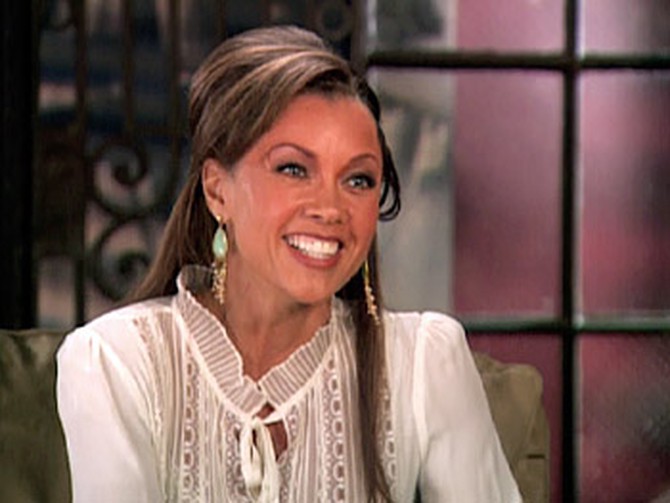
Vanessa Williams appears on the ABC hit Ugly Betty as fashion diva Wilhelmina Slater. But at home, Vanessa works to balance her career as an actress with her responsibilities as a mother of four.
In the past, Vanessa says she has passed up roles because she didn't want to leave her kids. Now, Vanessa works on Ugly Betty in California while her kids live in New York—but even her oldest daughter encouraged her to go for it. "She said, 'You know what, Mom? We'll be fine. We'll come visit you. You're great in this role. You'll love it. Just do it,'" Vanessa says.
After enlisting her ex-husband and her mother to help take care of the children, Vanessa decided to take the role. "It takes a village, and I have the okay of the village to say, 'We will hold it down while you're working out here.'"
Even with the support of her family, Vanessa still faces challenges as a working mom. "It's not as effortless as it seems," she says. "Certainly I've had two failed marriages trying to juggle everything, and unfortunately, the marriages were probably the least attended to, in terms of, my kids came first, my career, trying to make money for my kids to be able to give them a life that I want them to have, and trying to keep everything spinning. Something's got to give."
In the past, Vanessa says she has passed up roles because she didn't want to leave her kids. Now, Vanessa works on Ugly Betty in California while her kids live in New York—but even her oldest daughter encouraged her to go for it. "She said, 'You know what, Mom? We'll be fine. We'll come visit you. You're great in this role. You'll love it. Just do it,'" Vanessa says.
After enlisting her ex-husband and her mother to help take care of the children, Vanessa decided to take the role. "It takes a village, and I have the okay of the village to say, 'We will hold it down while you're working out here.'"
Even with the support of her family, Vanessa still faces challenges as a working mom. "It's not as effortless as it seems," she says. "Certainly I've had two failed marriages trying to juggle everything, and unfortunately, the marriages were probably the least attended to, in terms of, my kids came first, my career, trying to make money for my kids to be able to give them a life that I want them to have, and trying to keep everything spinning. Something's got to give."
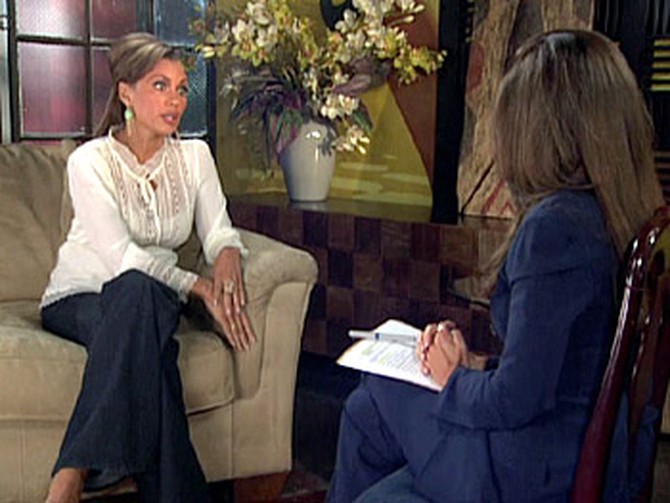
Vanessa's own mother, Helen, instilled her daughter with life lessons that she wants to pass down to her own daughters. "Love what you do, and love who you are. That was a big lesson that my mother always talked about—being independent and being who you are," she says. "Dare to be different. If you want to dress that way, dress that way. If you have a voice, stand up and speak it. Say what you want to say."
Although she and her mother have come to an understanding now, when she was growing up, Vanessa says she went through a long period of rebellion—from seventh grade until she got married! "I said, 'I don't care. I'm going to take the heat anyway, so I may as well do what I want to do.' And I would stay out or do things that I knew would cross the line," she says.
But every time Vanessa broke a rule, she says her parents enforced the punishments they gave her. "That's another great groundwork that my parents set up, that with an action, there's a consequence." Vanessa says she crossed the line so often that she was grounded throughout most of high school! "The most severe [punishment] was my door was taken off. They said, 'You do not deserve privacy,' and they took off my bedroom door," she says.
Vanessa says she finally ended her rebellion when, as an adult and a mom herself, she realized she needed her mother's guidance sometimes. "I think, as a mother of four, you certainly don't appreciate the mother you have until you have kids," she says.
Although she and her mother have come to an understanding now, when she was growing up, Vanessa says she went through a long period of rebellion—from seventh grade until she got married! "I said, 'I don't care. I'm going to take the heat anyway, so I may as well do what I want to do.' And I would stay out or do things that I knew would cross the line," she says.
But every time Vanessa broke a rule, she says her parents enforced the punishments they gave her. "That's another great groundwork that my parents set up, that with an action, there's a consequence." Vanessa says she crossed the line so often that she was grounded throughout most of high school! "The most severe [punishment] was my door was taken off. They said, 'You do not deserve privacy,' and they took off my bedroom door," she says.
Vanessa says she finally ended her rebellion when, as an adult and a mom herself, she realized she needed her mother's guidance sometimes. "I think, as a mother of four, you certainly don't appreciate the mother you have until you have kids," she says.
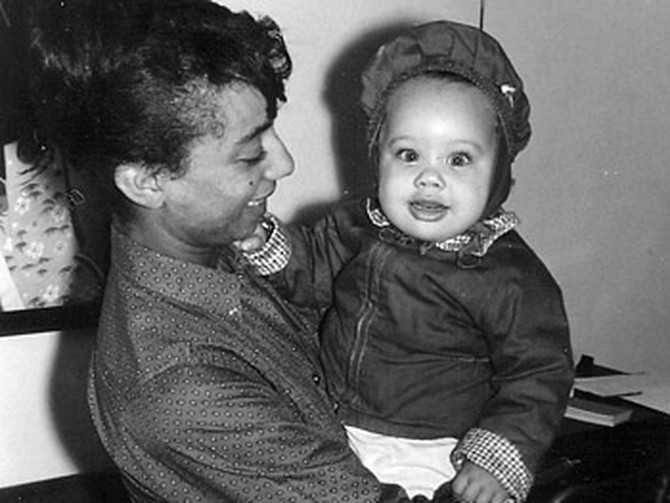
Vanessa's mother, Helen, says one thing she wishes she'd been able to do when she was raising her children is to show her love for them more easily. "I came from a family that did not display a lot of affection, not demonstrative at all with showing love or how you feel," Helen says. "And I wish it had been. It was never comfortable for me to be able to do that, and to this very day, I really have to work at it."
"There are many nights where I remember saying to my dad, 'Does Mom love me?' or 'Why can't Mom show me love?'" Vanessa says. "He said, 'Well, Mom's childhood was tough,'" Vanessa says. "And knowing that, knowing the reason, I wasn't searching or looking or hungry for it, because I understood it."
While Helen had to enforce rules a lot during her daughter's rebellious years, she believes Vanessa always knew it was in her best interests. "I wanted to raise a daughter who could be the best at what she wanted to be. And maybe her best would not be as good as somebody else's best, but it was her best," Helen says. "Fortunately, her best has been very good."
Vanessa says her mother has very high standards for her, and sometimes compliments are hard to come by. But Helen says she doesn't try to be her daughter's friend—she tries to be honest. "I'm her mother. She has friends, and I'm friends with some of her peers," Helen says. "But first I'm a parent, and I hope that I'm also a friend. But that's not the most important thing to me. The most important thing to me is that I'm her mother."
"There are many nights where I remember saying to my dad, 'Does Mom love me?' or 'Why can't Mom show me love?'" Vanessa says. "He said, 'Well, Mom's childhood was tough,'" Vanessa says. "And knowing that, knowing the reason, I wasn't searching or looking or hungry for it, because I understood it."
While Helen had to enforce rules a lot during her daughter's rebellious years, she believes Vanessa always knew it was in her best interests. "I wanted to raise a daughter who could be the best at what she wanted to be. And maybe her best would not be as good as somebody else's best, but it was her best," Helen says. "Fortunately, her best has been very good."
Vanessa says her mother has very high standards for her, and sometimes compliments are hard to come by. But Helen says she doesn't try to be her daughter's friend—she tries to be honest. "I'm her mother. She has friends, and I'm friends with some of her peers," Helen says. "But first I'm a parent, and I hope that I'm also a friend. But that's not the most important thing to me. The most important thing to me is that I'm her mother."
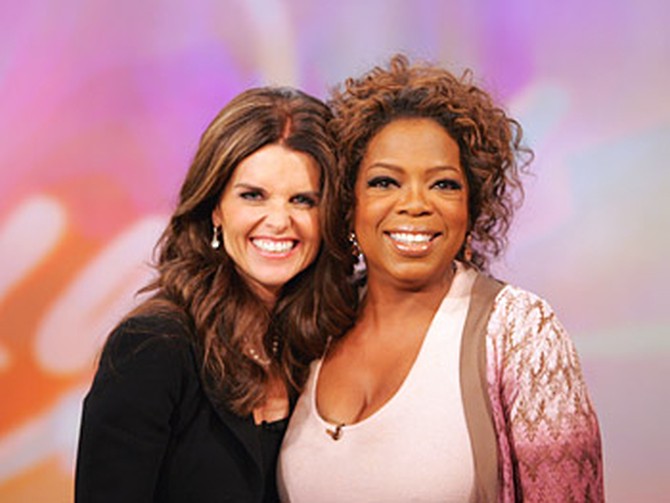
After her interviews with Demi, Vanessa and Helen, Maria says she realizes the importance of showing that you love your children for themselves. "The one thing I learned over all of this is to show your children unconditional love. That's where they learn it, at home, and that they don't have to perform in order to get your love," she says. "That you love them for who they are and that it's not about how successful they've become."
From her own mother, Eunice Kennedy Shriver , Maria says she has learned many lifelong lessons. "I learned the power of faith, the importance of faith, the importance of family loyalty. My mother's taught me that, taught me to be strong, to be independent. She taught me how to get tackled on a football field," Maria says. "She also taught me how to be a mother and that mothering never ends."
As for Mother's Day, Maria suggests giving a personal gift to your mom. "I think write a letter to your mother, actually. Instead of letting the card say it, write what you actually feel to your mother," Maria says. "The letters my kids have written me are the most valuable possessions I own."
From her own mother, Eunice Kennedy Shriver , Maria says she has learned many lifelong lessons. "I learned the power of faith, the importance of faith, the importance of family loyalty. My mother's taught me that, taught me to be strong, to be independent. She taught me how to get tackled on a football field," Maria says. "She also taught me how to be a mother and that mothering never ends."
As for Mother's Day, Maria suggests giving a personal gift to your mom. "I think write a letter to your mother, actually. Instead of letting the card say it, write what you actually feel to your mother," Maria says. "The letters my kids have written me are the most valuable possessions I own."
Published 01/01/2006

